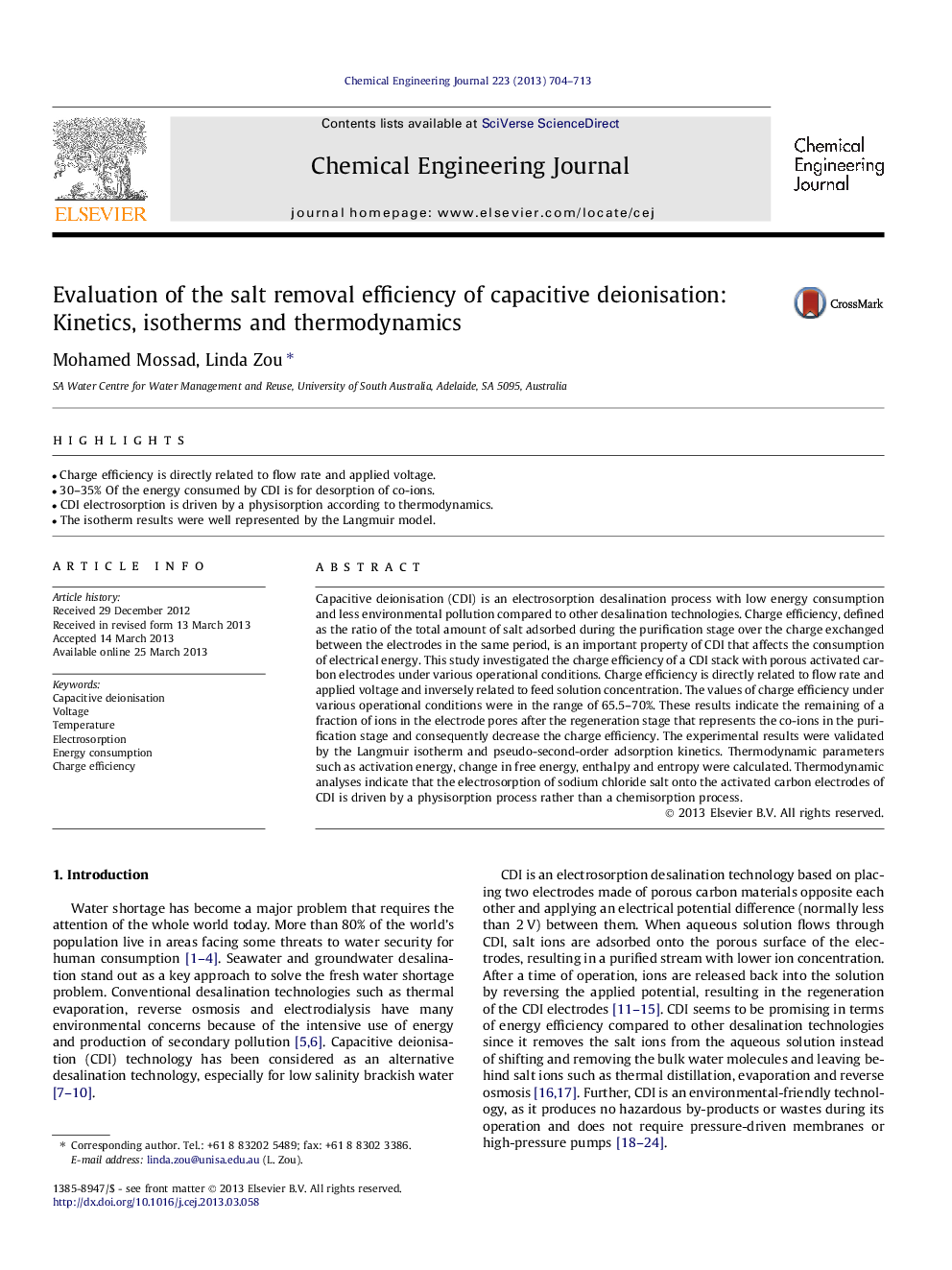| Article ID | Journal | Published Year | Pages | File Type |
|---|---|---|---|---|
| 6588050 | Chemical Engineering Journal | 2013 | 10 Pages |
Abstract
Capacitive deionisation (CDI) is an electrosorption desalination process with low energy consumption and less environmental pollution compared to other desalination technologies. Charge efficiency, defined as the ratio of the total amount of salt adsorbed during the purification stage over the charge exchanged between the electrodes in the same period, is an important property of CDI that affects the consumption of electrical energy. This study investigated the charge efficiency of a CDI stack with porous activated carbon electrodes under various operational conditions. Charge efficiency is directly related to flow rate and applied voltage and inversely related to feed solution concentration. The values of charge efficiency under various operational conditions were in the range of 65.5-70%. These results indicate the remaining of a fraction of ions in the electrode pores after the regeneration stage that represents the co-ions in the purification stage and consequently decrease the charge efficiency. The experimental results were validated by the Langmuir isotherm and pseudo-second-order adsorption kinetics. Thermodynamic parameters such as activation energy, change in free energy, enthalpy and entropy were calculated. Thermodynamic analyses indicate that the electrosorption of sodium chloride salt onto the activated carbon electrodes of CDI is driven by a physisorption process rather than a chemisorption process.
Keywords
Related Topics
Physical Sciences and Engineering
Chemical Engineering
Chemical Engineering (General)
Authors
Mohamed Mossad, Linda Zou,
